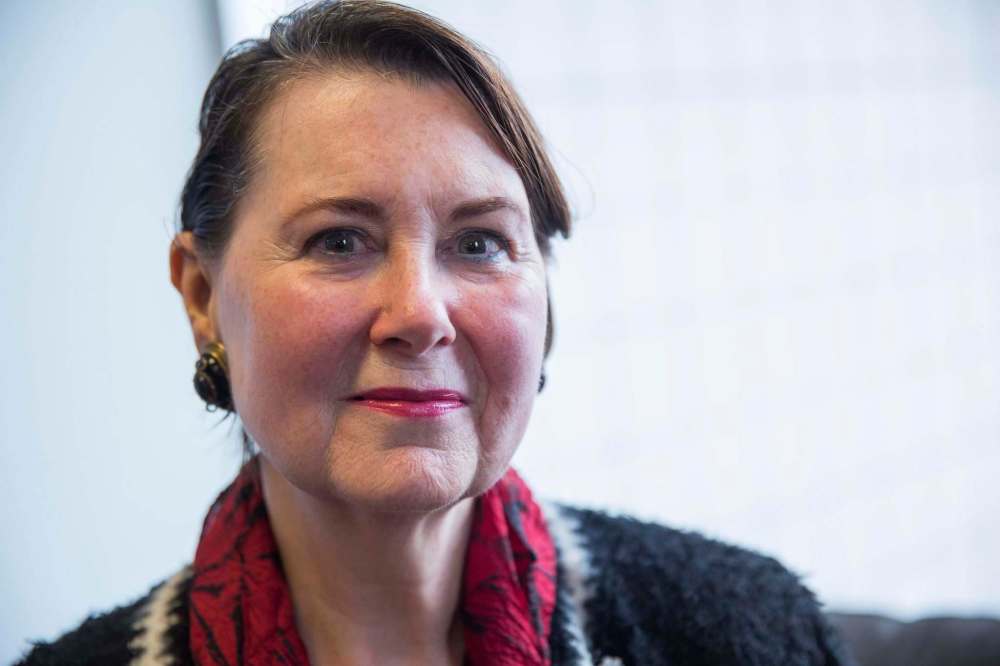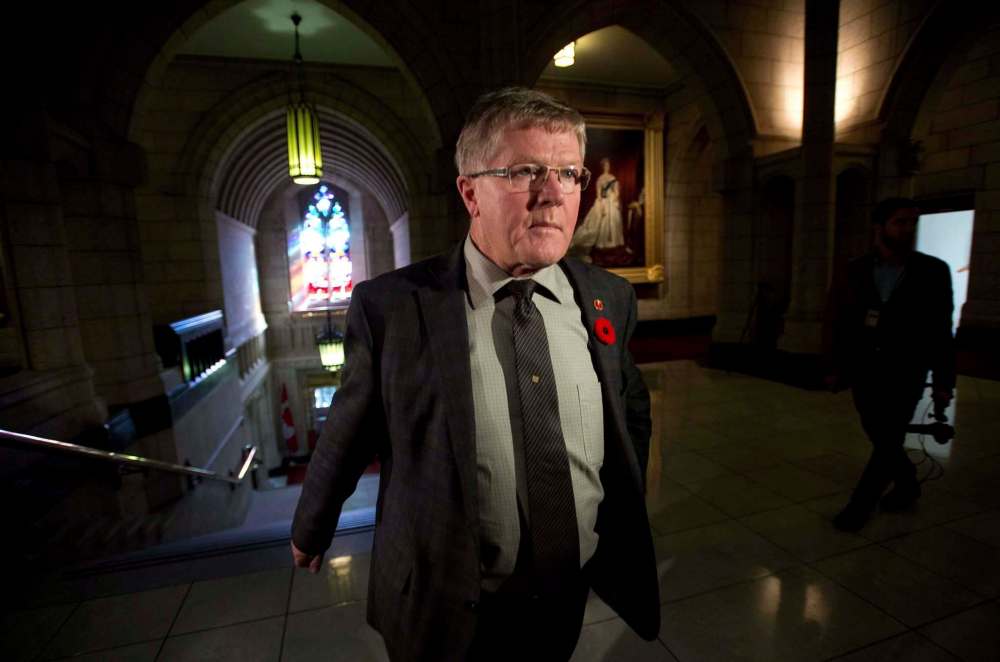Manitoba senators defend controversial medals
Recognition prompts 'unmerited' ridicule, some senators say
Advertisement
Read this article for free:
or
Already have an account? Log in here »
To continue reading, please subscribe:
Monthly Digital Subscription
$1 per week for 24 weeks*
- Enjoy unlimited reading on winnipegfreepress.com
- Read the E-Edition, our digital replica newspaper
- Access News Break, our award-winning app
- Play interactive puzzles
*Billed as $4.00 plus GST every four weeks. After 24 weeks, price increases to the regular rate of $19.95 plus GST every four weeks. Offer available to new and qualified returning subscribers only. Cancel any time.
Monthly Digital Subscription
$4.99/week*
- Enjoy unlimited reading on winnipegfreepress.com
- Read the E-Edition, our digital replica newspaper
- Access News Break, our award-winning app
- Play interactive puzzles
*Billed as $19.95 plus GST every four weeks. Cancel any time.
To continue reading, please subscribe:
Add Free Press access to your Brandon Sun subscription for only an additional
$1 for the first 4 weeks*
*Your next subscription payment will increase by $1.00 and you will be charged $16.99 plus GST for four weeks. After four weeks, your payment will increase to $23.99 plus GST every four weeks.
Read unlimited articles for free today:
or
Already have an account? Log in here »
Hey there, time traveller!
This article was published 23/11/2017 (2984 days ago), so information in it may no longer be current.
OTTAWA — Manitoba has an award-winning group of senators, each holding honorary degrees or formal recognition from their careers. But a more recent medal to commemorate the senators, alongside dedicated Manitobans, has riled up the Red Chamber.
“Unfortunately, the CBCs of the world have decided this is another opportunity to crap on the Senate,” Conservative Sen. Don Plett said Thursday. In his view, negative media coverage will “belittle the wonderful people who are going to be getting these medals because they are deserving.”
This month, the Senate started doling out awards to commemorate the institution’s 150th anniversary. The Royal Canadian Mint is issuing 1,500 medals, at a cost of $225,000 ($150 each). It has allowed each senator to highlight volunteer and advocacy work by a dozen “unsung heroes” in their province — including themselves.

Newfoundland Sen. David Wells, who is co-leading the program, told the media this week “senators were also offered a medal as a recognition of their contribution to the parliamentary debate over the last 150 years.”
That’s prompted ridicule on radio shows and editorial pages — which some senators say is unmerited.
Plett will award his medals Saturday. The recipients include the Winnipeg family seeking to build the Bruce Oake Recovery Centre in memory of their son who died from addiction. When Plett called to tell Edna Nabess, the Manitoba artist who founded Cree-Ations and volunteers for child services, of her award, she cried, he said.
“These are the types of people that we are trying to honour, and it is getting a black name because the senators have accepted a coin,” he said. “I’d be happy to give my coin to anybody; unfortunately, we all have names engraved on it.”
Sen. Patricia Bovey is accepting an award “to honour the work of prior senators.” Her medals award academics and artists, specifically people outside Winnipeg and those who haven’t received honours such as the Order of Canada. That includes a volunteer with the Inuit museum in Churchill, long-time Glenboro volunteer Agnes Witherspoon and University of Manitoba law Prof. Karen Busby, who leads the Centre for Human Rights Research.
“There’s been an awful lot of misnomers,” Bovey said. “I’m very sad that it seems to have become a political football.”
Sen. Marilou McPhedran’s medals are themed around human rights, and will go to women advocating for South Sudan and people helping resettled Yazidi refugees. She said she picked her choices partially in response to a 2015 Maclean’s magazine article that claimed Winnipeg was “becoming Canada’s most racist city.”
“The only way that any community can get beyond titles like ‘most racist, most violent,’ et cetera, is to build person by person,” McPhedran said, to address “the many kinds of marginalization that are often invisible to us who live quite privileged lives.”
She said Indigenous recipients accepted the award on the condition it honoured their service, and not Canada’s 150th anniversary. “We have only begun to face our own crimes against humanity.”
There are 105 sitting senators, 44 of whom opted to accept a metal, alongside three former senators. Senators who don’t give out medals can allow their colleagues to award more of them.
Of the five Manitobans, Independent Sens. Murray Sinclair and Raymonde Gagné both declined to receive or give out the medals, and both declined to explain why. It’s unclear how senators even got on the list of medal recipients. Plett described an “opt-out” process where he didn’t realize he could decline the award.
Bovey said it was a choice made by each individual. Wells said in an email the Senate’s internal administration committee included all sitting senators in the program.

“The reasons why some senators accepted medals and others did not are very different and each of us likely used quite different criteria,” he wrote Thursday. It’s not clear what the medal actually commemorates. Plett described it as a cross-party effort, after the Liberals cancelled the former Harper government’s plan to issue a Canada 150 medal for volunteers.
“I do not consider it a medal; I consider it a commemorative coin for my office, for me to commemorate Canada’s 150 birthday,” he said.
Bovey says it commemorates the Red Chamber’s founding, some four months after Confederation. “It’s not a Canada 150 medal; it is a Senate 150 medal. There may have been some confusion.”
McPhedran revealed she’s struggled with her role as a senator, with the medal awkwardly marking a year since she gave up a university career that afforded more freedom.
She was at the forefront of a push to fix sexual discrimination in the Indian Act, causing the government to extend legislation, but not as far as she’d hoped. Her recent request to attend a parliamentarian conference was declined through a bureaucratic process, even though it fit within Senate rules and her budget.
“I’ve been in this new job for a year, and I’ve had really mixed feelings about whether I should be here,” she said. “This is like being in high school; the lack of personal freedom is astonishing to me.”
dylan.robertson@freepress.mb.ca


